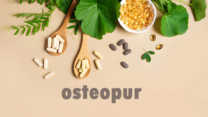
Food & Mood: How What You Eat Affects Well-being
Ever noticed how a sugary snack can give you a quick burst of energy, only to leave you crashing and irritable a short while later? Or how a wholesome meal can leave you feeling sustained and calm? It’s not just in your head. The intricate connection between your plate and your psychological state, often called Food and Mood. While we’ve long understood that diet impacts physical health, mounting evidence reveals its profound influence on our emotional stability, cognitive function, and even our risk of mental health conditions. This isn’t about restrictive diets or miracle foods. Instead, it’s about a deeper understanding of how the nutrients, or lack thereof, in our daily meals directly interact with our brain and gut, orchestrating our mental landscape.
The Gut-Brain Highway
Think of your gut as your second brain. It’s home to trillions of bacteria, viruses, and fungi, collectively known as the gut microbiome. This bustling ecosystem is far more than just a digestive aid; it’s a critical player in your mental health.
Here’s how this two-way communication system, often called the gut-brain axis, influences your mood:
- Neurotransmitter Production: A significant portion of your body’s mood-regulating neurotransmitters, like serotonin (the happiness hormone) and GABA (which calms the nervous system), are produced in the gut. A healthy, diverse microbiome helps facilitate this crucial production.
- Inflammation Control: An imbalanced gut, often fueled by processed foods, can lead to chronic inflammation throughout the body, including the brain. This inflammation can disrupt brain chemistry, directly contributing to mood disorders.
- Nutrient Absorption: A healthy gut efficiently absorbs vital nutrients that are essential for brain function. When gut health is compromised, even a nutrient-rich diet might not fully benefit your brain.
Three Core Mechanisms Linking Food to Your Mental State
Understanding the biological underpinnings helps clarify why what you eat affects your mental health in tangible ways:
Inflammation’s Silent Grip
Chronic inflammation isn’t just about physical pain; it’s a major disruptor of brain chemicals. Imagine microscopic fires constantly smoldering in your body. These fires can interfere with serotonin and dopamine, crucial neurotransmitters for regulating mood, pleasure, and motivation. Foods high in refined sugars, unhealthy fats, and artificial additives are notorious inflammation instigators, while anti-inflammatory foods like berries, leafy greens, and omega-3 rich fish can help calm the storm.
The Glucose Rollercoaster and Mood Swings
Our blood sugar (glucose) levels are highly responsive to what we eat. A meal high in simple carbohydrates or sugar can cause a rapid spike, followed by a dramatic crash. This glucose rollercoaster can mirror mood swings, leading to irritability, anxiety, and fatigue. Sustained energy and stable mood come from foods that release glucose slowly, such as whole grains, lean proteins, and healthy fats.
The Microbiome’s Mood-Altering Chemicals
Your gut microbes are tiny chemists. They break down the foods you eat into various compounds, some of which directly influence brain function. For instance, some microbes produce short-chain fatty acids (SCFAs) like butyrate, which can strengthen the gut barrier and have anti-inflammatory effects, thereby supporting brain health. An altered microbiome, often seen in individuals with mood issues, can produce fewer beneficial compounds and more inflammatory ones, creating a negative feedback loop.
Practical Dietary Strategies
So, how can you leverage the power of Food and Mood in your daily life? It’s simpler than you might think. Focus on abundance and variety rather than strict restriction.
Here’s a breakdown of what to prioritize and why:
| Nutrient | Why It Matters for Mood | Found In |
| Fiber | Stabilizes blood sugar, feeds healthy gut bacteria, prevents energy crashes. | Beans, lentils, whole grains, fruits, vegetables |
| Antioxidants | Fight inflammation, protect brain cells, improve cognitive function. | Berries, leafy greens, colorful vegetables, dark chocolate, nuts |
| Omega-3 Fatty Acids | Crucial for brain structure and function, reduce inflammation, linked to lower depression risk. | Fatty fish (salmon, mackerel), flaxseeds, chia seeds, walnuts |
| Folate (Vitamin B9) | Essential for neurotransmitter production (dopamine, serotonin). | Leafy greens, lentils, avocados, cantaloupe |
| Vitamin D | Plays a role in serotonin production and overall brain health. | Fatty fish, egg yolks, fortified milk/orange juice, sunlight |
| Magnesium | Involved in over 300 biochemical reactions, reduces anxiety, improves sleep. | Cacao nibs, almonds, cashews, spinach, bananas, beans |
Actionable Steps for a Mood-Boosting Diet
- Embrace the Rainbow: Fill your plate with a wide variety of colorful fruits and vegetables. Each color signifies different vitamins, minerals, and antioxidants that work synergistically for your well-being.
- Choose Whole Over Processed: Opt for foods that are as close to their natural state as possible. Think whole fruits instead of fruit juice, and whole grains instead of white bread. This simple switch significantly reduces sugar spikes and inflammatory load.
- Hydrate Smart: Don’t underestimate the power of water. Dehydration can lead to fatigue, poor concentration, and irritability. Aim for at least 64 ounces of water daily.
- Mind Your Caffeine and Alcohol: While a cup of coffee can boost dopamine, excessive intake of caffeine can fuel anxiety and disrupt sleep. Similarly, alcohol, a depressant, can negatively impact mood and sleep quality. Moderation is key.
- Snack Strategically: Reach for nutrient-dense snacks like nuts, seeds, or a piece of fruit to maintain stable energy levels and ward off mood dips between meals.
The Ritual of Eating
It’s not just what you eat, but also how you eat. Our relationship with food extends into our social and emotional lives.
- Mindful Eating: Step away from screens and distractions. Pay attention to the flavors, textures, and aromas of your food. This practice can improve digestion and foster a deeper connection to your body’s satiety signals.
- Shared Meals: Food is a powerful tool for connection. Sharing meals with friends, family, or colleagues can reduce feelings of isolation and boost overall happiness.
- Connecting to Your Food Source: Whether it’s growing a small herb garden or visiting a local farmer’s market, understanding where your food comes from can foster a sense of satisfaction and appreciation, subtly enhancing your mood.
Your Personal Food-Mood Journal
Understanding how specific foods affect your unique body chemistry is incredibly empowering. Consider keeping a food journal for a week or two. Track:
- What you ate and drank, and how much.
- When you ate (e.g., before exercise, late at night).
- Your mood throughout the day (e.g., irritable, energetic, calm).
- Any physical symptoms (e.g., heartburn, fatigue, headaches).
Conclusion
The emerging science of Food and Mood offers a compelling argument for prioritizing nutrition as a cornerstone of mental health. By understanding the gut-brain connection, controlling inflammation and blood sugar, and embracing a diet rich in whole, nutrient-dense foods, you’re not just feeding your body; you’re actively nourishing your mind and cultivating a healthier, happier you. Start small, experiment, and listen to your body – it has more to tell you than you think.
Frequently Asked Questions (FAQs)
How quickly can diet affect my mood?
While significant changes take time, some people notice subtle mood shifts within a day or two of dietary changes, particularly concerning blood sugar stability and energy levels. Consistent healthy eating leads to more profound and lasting improvements.
What is the gut-brain axis and why is it important for mood?
The gut-brain axis is a two-way communication system between your gut and your brain. It’s crucial because your gut microbiome produces neurotransmitters (like serotonin) that regulate mood and can influence inflammation, directly impacting your mental well-being.
Can highly processed foods truly lead to depression or anxiety?
Research increasingly links high consumption of highly processed foods to an increased risk of depression and anxiety. These foods can cause inflammation, blood sugar dysregulation, and negative changes in the gut microbiome, all of which contribute to poorer mental health.
Are there specific nutrients I should focus on for better mood?
Yes, key nutrients include fiber (for gut health and stable blood sugar), antioxidants (to reduce inflammation), Omega-3 fatty acids (for brain structure), Folate (for neurotransmitter production), Vitamin D (for serotonin), and Magnesium (for anxiety reduction).
Is mindful eating really helpful for mental well-being?
Absolutely. Mindful eating encourages you to pay attention to your food and body’s signals, reducing stress around meals, improving digestion, and fostering a healthier relationship with food, which positively impacts overall well-being.
How does hydration relate to mood?
Proper hydration is vital for optimal brain function. Even mild dehydration can lead to fatigue, poor concentration, headaches, and irritability, negatively impacting your mood and energy levels.
Should I cut out coffee or tea if I’m struggling with my mood?
While coffee and tea can stimulate mood-boosting chemicals, excessive caffeine can contribute to anxiety and disrupt sleep. It’s best to be mindful of your intake, especially in the afternoon, and observe how it personally affects your mood and sleep patterns.
Can keeping a food journal really help my mood?
Yes, a food journal is a powerful tool. By tracking what you eat, when you eat, and your corresponding mood, you can identify patterns, pinpoint trigger foods, and discover optimal eating times that consistently support your energy and emotional stability.












